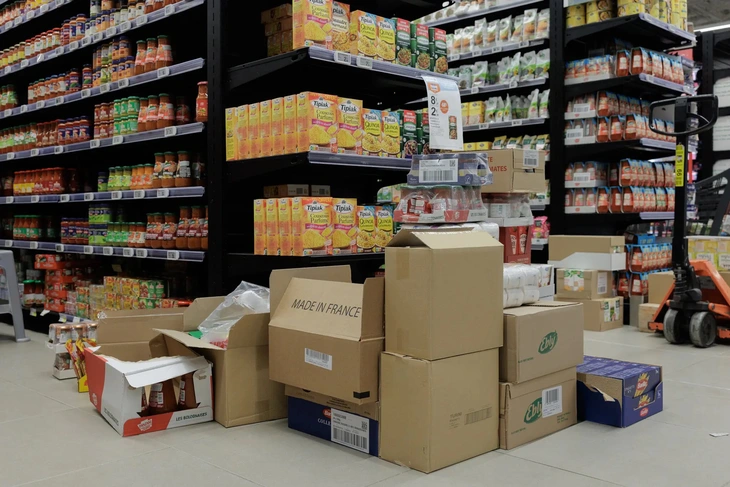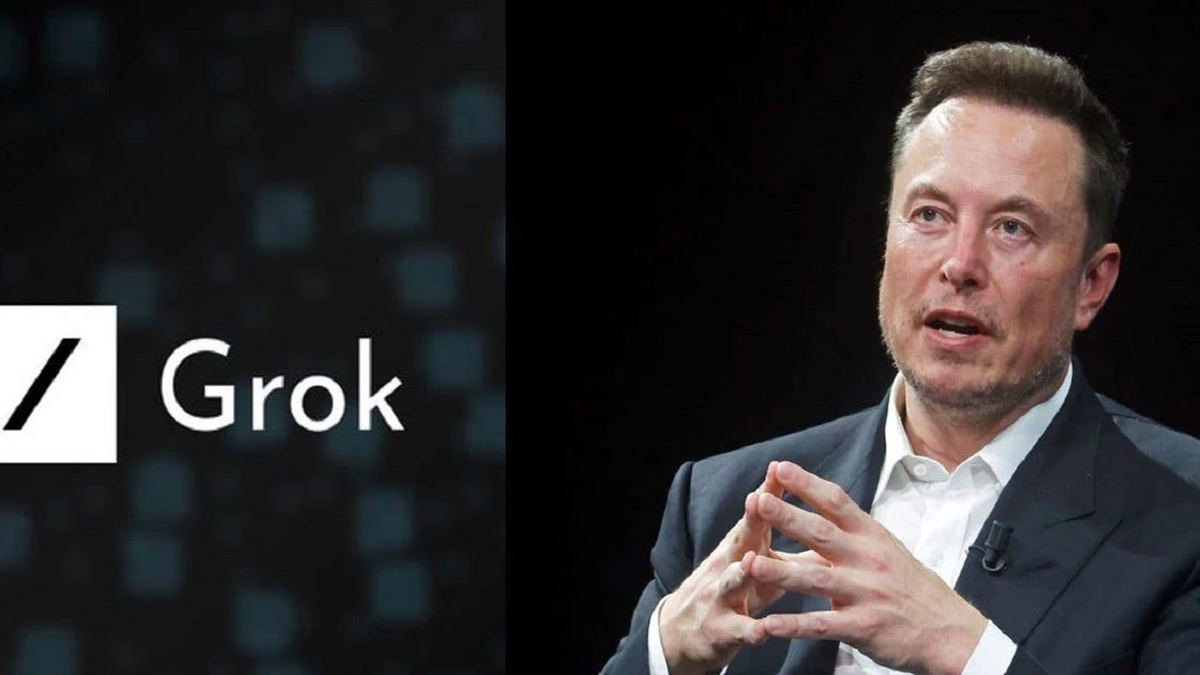
A supermarket in Paris, France - Photo: NEW YORK TIMES
On May 23, US President Donald Trump threatened to impose a 50% tariff on goods from the European Union (EU) starting June 1. This is the latest move in a series of unexpected changes in Washington's trade policy.
The 50% tariff is more than double the 20% reciprocal tariff that Mr Trump imposed on the EU in April, before pausing it to allow for negotiations.
It is unclear whether this is a negotiating tactic, a serious threat or just a tantrum. But economists warn that if Mr Trump actually imposes a 50% tariff, the consequences for the US, European and global economies will be very serious.
Catastrophic consequences for the economy
Carsten Brzeski, chief eurozone economist at ING Bank, warned that the tariffs could lead to high inflation combined with slow growth in the US, while Europe could be pushed into recession and global growth would decline.
Trade researcher Julian Hinz from the Kiel Institute for the World Economy calculates that US economic growth will fall by 1.5%.
According to Capital Economics' calculations, if Mr. Trump actually imposes a 50% tax on June 1, Ireland - the European country with the largest trade relationship with the US - will be most severely affected, with its GDP falling by 4%.
Germany's GDP is expected to fall 1.5%, Italy's 1.2%, France's 0.75% and Spain's 0.5%.
Capital Economics chief economist Neil Shearing said the tariff hikes, the surprise threat and the growing size of the US budget deficit were unsettling financial markets. A week earlier, Moody's downgraded the US credit rating due to concerns about the country's growing debt.
“All of this suggests that the current US policy direction is lacking in credibility,” said Mr Shearing.
Many companies are also adjusting their risk assessments of investing in the U.S., a sign that uncertainty is reducing the attractiveness of investing in the U.S., said Mary E. Lovely, professor emeritus of economics at Syracuse University.
"One of the president's big goals is to increase investment. But who would want to put a factory here when the president can suddenly impose very high tariffs on raw materials, and the products when exported can face retaliation from the markets?", Ms. Lovely asked.
Will the EU respond?
Maurice Obstfeld, a senior fellow at the Peterson Institute for International Economics and former chief economist of the International Monetary Fund (IMF), said Europe could learn from the US-China trade war that if it reacts harshly, the US may have to "back down".
However, many experts also pointed out Europe's difficulties in negotiating, while Mr. Trump has not yet clarified what he ultimately wants.
European officials have also prepared a series of countermeasures if the US decides to increase tariffs. In addition to tariffs on cars, food and car parts, the EU has also threatened to impose tariffs on the US service sector - a sector that accounts for a large part of the US economy and Europe is a large consumer market.
Following Mr. Trump's threat, on May 23, the European Commission called on Washington to bring respect instead of threats to the negotiating table.
EU Trade Commissioner Maros Sefcovic spoke by phone with US Trade Representative Jamieson Greer and US Commerce Secretary Howard Lutnick. The EU is committed to reaching a mutually beneficial agreement.
“EU-US trade relations are unparalleled and must be guided by mutual respect, not threats. We are ready to defend our interests,” Sefcovic wrote on X.
Source: https://tuoitre.vn/ong-trump-ap-thue-50-len-eu-se-la-tham-hoa-voi-kinh-te-my-va-chau-au-20250524132628378.htm
























![[Photo] National Assembly Chairman Tran Thanh Man visits Vietnamese Heroic Mother Ta Thi Tran](https://vphoto.vietnam.vn/thumb/1200x675/vietnam/resource/IMAGE/2025/7/20/765c0bd057dd44ad83ab89fe0255b783)










































































Comment (0)